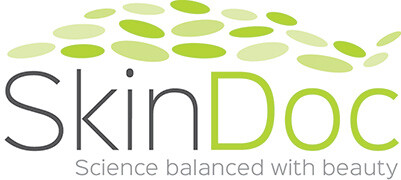Acne in Adult Women
Acne Facts
Did you know that the numbers of acne in adult women is increasing? In a survey of 749 randomly selected individuals over the age of 25 years found the prevalence of acne is 54% in women and 40% in men.
In 52% of adults, acne has persisted since childhood. In the 10 years to 1999, the mean age of patients with acne has increased from 20 years to 26 years.
In males, acne tends to be most common in the late teens and 20s. In females acne tends to be most prevalent after the age of 30.
Acne is no longer considered a transient condition of teenage years. Acne is now presenting earlier and lasting longer.
Female acne
Acne in females is common.
Females account for 2/3 of visits to dermatologists for acne. One in three of visits for acne are by women over the age of 25.
Acne in adult women can have significant psychosocial implications and tends to cause more significant distress in women than men. In one report almost 9% of women reported to have depression as a result of acne, twice the number of respondents with depression as compared to men.
Depression does not correlate with the clinical severity of the acne.
How does acne affect women’s lives?
Women with acne tend to show greater self-consciousness of their appearance than men.
What are the hormonal triggers?
Polycystic ovarian disorders can cause acne. Less common causes include late onset congenital adrenal hyperplasia and rarely androgen secreting tumours.
What medication can be associated with acne?
In the combined oral contraceptives, high progesterone can trigger acne.
Progesterone coils and Implanon have been linked to causing acne or exacerbating it.
Is acne genetic?
There is a high frequency of family history of acne in adult women with acne. In 67% of women there is at least one immediate member of the family who also had or have acne (parent or sibling).
Can cosmetics aggravate acne?
Women will often use cosmetics to hide their acne.
What cosmetic products can aggravate acne?
Products that are comedogenic can aggravate acne. They are
- Isopropyl myristate
- Cocoa butter
- Lanolin
- Butyl stearate
- Oleic acid
Some bleaching products if they contain steroid can make acne worst.
Hair care products have been implicated.
Can smoking aggravate acne?
There are conflicting reports in the medical literature.
Acne may cause a relative deficiency in antioxidants leading to modification in sebum composition.
Excess nicotine acts on nicotinic acid receptors in the skin leading to constriction of blood vessels then rebound dilation of blood vessels.
Can diet influence acne?
Patients are often convinced there is a link between acne and diet.
Diets with high sugar (high glycaemic index G.I. or G.I. above 80) are thought to aggravate acne. Sugar acts on the insulin and insulin growth factors leading to acne development.
Does milk affect acne?
There is evidence that milk, particularly skim milk, can aggravate acne in about 10% of patients.
Can dietary supplements aggravate acne?
Whey protein has been implicated in aggravating acne.
Adult female acne facts
Acne is very common with 40-50% of adult women experiencing acne. It is increasing in prevalence and persist beyond adolescence and appear independently for the first time in their 20s.
It is frequently chronic and associated with unpredictable flares. It can cause significant emotional stress and frustration.
Major impact of acne
Acne in women and men can lead to acne scars which are persistent. It can also lead to pigmentation which can persist for a long time.
Acne scars can be treated by a range of procedures including laser resurfacing using hybrid lasers such as Erbium YAG, radiofrequency, subcision, CROSS technique and Kleresca.
Pigmentation can improve with prescription creams, cosmeceutical products, chemical peels and pico laser such as Cutera Enlighten.
We wish to acknowledge Dr Alison Layton, dermatologist, UK who presented the above at IMCAS recently.
How can we help you with your acne?
We generally recommend a referral from your GP. This will allow you to see the dermatologist, Dr Jennifer Yip.
However if your acne is mild you may want to see our senior registered nurse, Ezgi in our nurse-led clinic who will suggest what products you can use and do not require a prescription.
If your acne is more severe it is still worthwhile seeing our senior registered nurse as she can advise you what to do to improve your skin whilst waiting to see the dermatologist.
